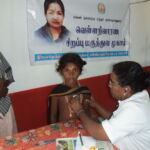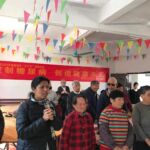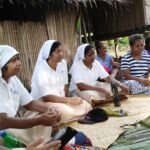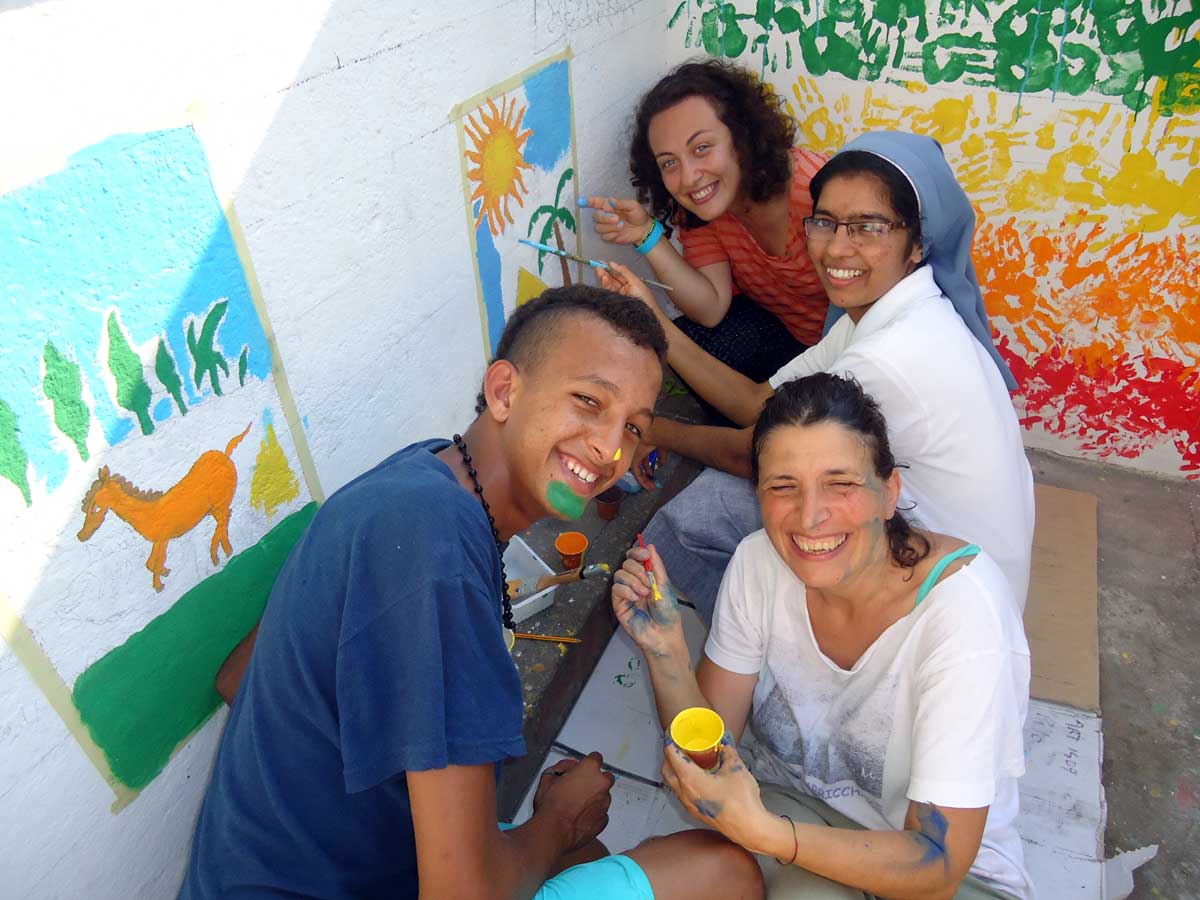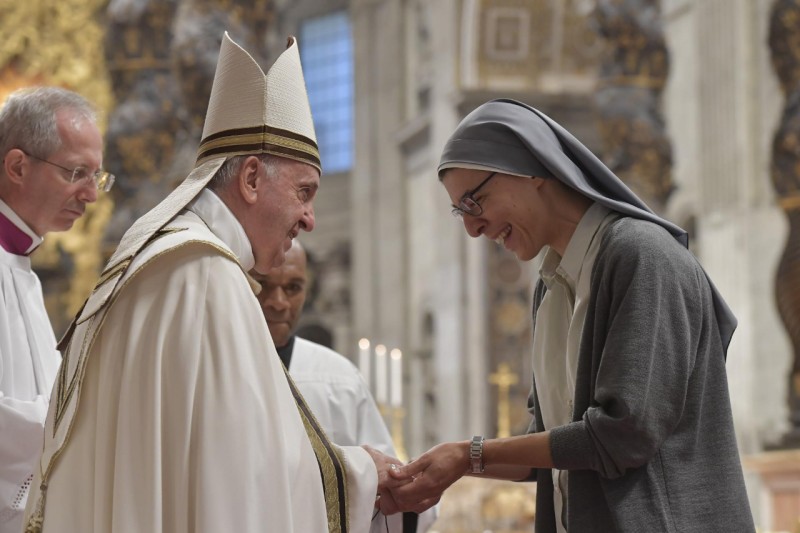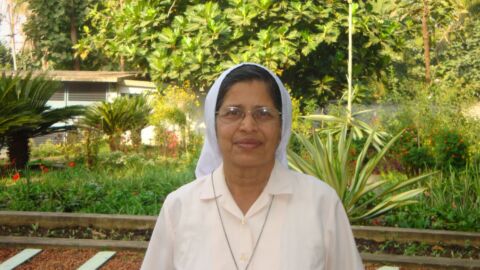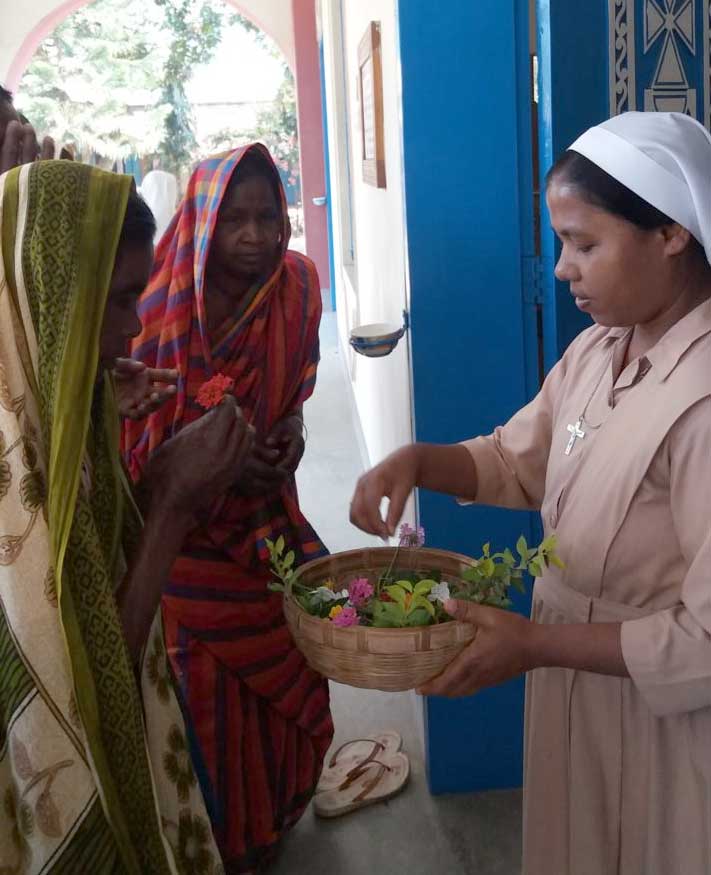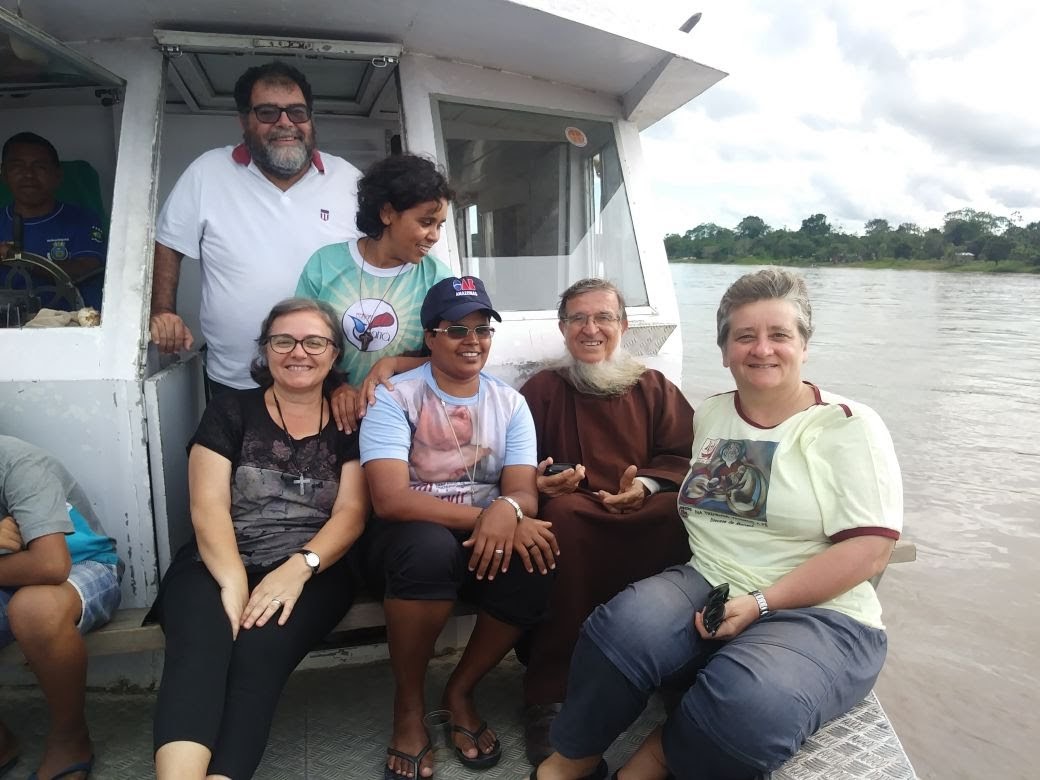In preparation for the Jubilee of the Mission that will be held on October 4 and 5, 2025, the Pontifical Missionary Union and the Unified Secretariat of Missionary Animation (Suam Lazio) have launched a series of meetings of reflection and prayer on the theme “journeys of hope” in the Mission ad gentes of today.
In the first meeting, held on March 25 at the Basilica of the Holy Apostles in Rome and online through the Zoom platform, Sr. Marilena Boracchi spoke of the great missionary Blessed Paolo Manna. She explained how his thought still helps the Church today to make the missionary identity shine in the Church and offers us a way to renew continually our evangelical witness in the world. “The mission must find “the ways of the hearts”, the way of incarnation, the way of relationship,” says Sr. Marilena echoing the words of Father Manna.
What is the way of hearts he speaks of? The approach allows one to “immerse oneself in cultures. To learn and to know the peoples’ cultures by abandoning expectations of easy results, but sustaining with frequent changes, to remain on mission. Cultivating the way of the hearts by staying close to people, listening, observing and forming oneself in love for the people to whom one is sent. The way of the hearts is found in the willingness to change style, to change methods, to give up imposing content, opening oneself to seek with others suitable ways of encounter. To find the way of the hearts translates one of his most famous expressions: “to love souls”, with an attitude of dialogue and renunciation of proselytism. Seeking it together, in a common apostolic project by bringing together the best forces to make new choices always in view of the goal, encouraging the encounter with Christ, experiencing his presence together: this is ultimately Christian hope. Finding the way of the hearts, as a way to proclaim Christ, the only hope”.

Here below is the full speech by Sr. Marilena at the first meeting of the series journeys of Hope:
Pope Francis in his message for the next World Missionary Day focuses on describing what the Christian missionary identity is, defined as a style, a feeling of the Christian community. We missionaries understand well the importance of appropriating this identity in an increasingly authentic way; we are a particular and hopefully eloquent sign of this identity, of this style, of this feeling of the Church.
We will never stop appropriating this identity that in our stories has taken the form of charisms, particular spiritualties. I believe it is important always to return to this source to re-express it today. Looking to Christ, the fulfillment of salvation for all (as Pope Francis says in his message), we continue his ministry of hope by putting our spiritual heritage into new words and gestures.
In this brief testimony, I was asked to highlight the figure of a great missionary: Blessed Paolo Manna; how Paolo Manna contributed and contributes today to make the Christian missionary identity and this ministry of hope, which is the missionary vocation shine.
What are the central aspects of Father Manna’s missionary idea?
He lives the phases and events of his life starting from the awareness, full of wonder, of being redeemed by Christ, saved by Christ. In his most intimate and perhaps least known writings he returns with joy and tenderness to this reality from which the purpose of the mission is born, the proclamation of salvation to all: all must be able to know and above all experience that they are saved, redeemed by Christ, that they are touched, taken by his resurrection. Moreover, this salvation is the true hope, the only hope.
Throughout his life, Father Manna tried to study the path to this fundamental proclamation. In one of his writings on the missionary method – a revolutionary writing in content and published only after his death – he raises burning issues and criticizes the “distortions” that distanced the mission from its goal. It continued to persist despite the gradual decline of the colonial era and the emergence of new dynamics of the universal mission and the increasingly convinced foundation of local churches. These “distortions” were linked to a mission dependent on particularistic, economic or even nationalistic interests that had little to do with the proclamation of salvation. Distortions linked to a mission that was an end in itself and not as an expression of the universality of the church. He was aware of new challenges, such as the great commitment to the foundation of local churches and the training of local personnel, themes that would receive due prominence during the Council that would speak of the mission as an exchange of gifts between the churches. The incipient phenomenon of secularization, which was beginning to undermine the territorial principle of the mission in the face of the anthropological principle, was already being taken note. Father Manna is well aware of the extent of the problems and is not naive about the possible solutions. And alongside a solid theological reflection and the offering of very concrete and cutting-edge suggestions, he proposes a way, an evangelical way, a principle capable of tackling the problems from within, of healing the “distortions” of the mission, of renewing the mission of all times and certainly also of our time; a journey of hope, of encounter with Christ.
In this controversial and programmatic text, Manna formulates his proposal using an expression that I find beautiful and says: the mission must “find the way of the hearts”, the way of incarnation, the way of relationship. And this at different levels for example: immersing oneself in cultures, learning and knowing the cultures of peoples, abandoning expectations of easy results, backing, with frequent changes, remaining in mission; cultivating the way of the hearts by staying close to people, listening, observing and forming oneself in love for the people to whom one is sent. the way of the hearts is found in the willingness to change style, to change methods, to give up imposing contents, opening oneself to seek with others suitable ways to encounter. Finding the way of the hearts translates one of his most famous expressions: “to love souls” with an attitude of dialogue and renunciation of proselytism. Finding the way of the hearts by seeking it together, in a common apostolic project by making the best forces converge to make new choices always in view of the goal, that is, preferring the encounter with Christ, experiencing his presence together: this is ultimately Christian hope.
To find the way of hearts, as the way to proclaim Christ, the unique hope. How do I feel alive today, how do I see this strong charismatic intuition resonating today, in our daily life, in the simple life and in the dreams of the Missionary sisters of the Immaculate in the world? I allow myself an introductory consideration and then a brief journey into our missions, presenting some experiences.
In general, I see and contemplate a river that flows underground, that feeds the daily life, a sort of tenacity and ability to stay in situations to stay close to people. A life that flows and that has its roots in trust in God and that allows us to move forward even when objectively we feel we are not up to the challenges. I see in our sisters an affability and simplicity in their ways, as our missionary style that generates hope in itself, generates closeness and possibilities in people. A type of charismatic hope that allows us to support the mission even though we are aware of our inability and limits!
Example of life:
A few days ago, I heard from Sr. Valeria, a young sister who lives in Tunisia. She told me about the difficulty of finding a way to insert herself in the neighborhood where she and two Indian sisters live, and about the idea of trying to fit in with a Tunisian association. This is to be closer to the people, to understand how to stand next to them while practicing Arabic and immersing herself in that particular social and religious fabric. Sr. Bondana, originally from Bangladesh, started a hostel for the very young girls from distant villages to give them the possibility to go to school. A few days ago, I saw a photo that touched me deeply. I saw attention and delicacy in the ways to make those girls feel at peace. You could see that they felt loved, “saved”. Some of them are in the hostel because they do not have a family to take care of them, and this is the first message of hope they receive from us: to experience the possibility of a good future. Since some years, in Jaipur, north India, a small community formed by sisters from our four Indian provinces has set up a specialized center for the recovery of children from the slums with serious disabilities. We can see miracles, hopes realized for children for whom no other destiny seemed possible. In Hong Kong, I met Sr. Bruna, an Italian, and Sr. Theresa, an Indian, who were pioneers in the mission in HK and have been there for almost 60 years. Now they are quite old but they are enthusiastic about the possibility of periodically visiting some leper colonies in China in the Shenzen area. They celebrate together with those people who are still among the most marginalized, they eat together and also pray together… small, occasional presences; what they are allowed to do in that complicated situation.
- module: NormalModule; touch: (0.13194445, 0.13194445); modeInfo: ; sceneMode: Auto; cct_value: 0; AI_Scene: (-1, -1); aec_lux: 120.0;
Another piece of life from the mission in Algeria. The ordinary life and the relationships we have, are suggesting something new that we want to implement. The Christian community is an absolute minority and situated in one of the cities of the Diocese of Oran. They are thinking of an enlarged parish pastoral council composed of the four sisters of the community, some sub-Saharan students who are in Algeria for the study, the prisoners that the sisters visit regularly in prison and Muslim friends… towards a possible community of life beyond affiliations and beyond physical barriers.
In Indonesia a new adventure has begun. An inter-congregational presence in the heart of the island of Borneo with two PIME fathers, one of our sister and two Burmese sisters from other congregations. This initiative is the result of a beautiful journey of comparison between institutes that were born in the wake of the PIME charism, albeit with different methods. An extended missionary family that believes that it is beautiful to seek together the path of hearts, as a concrete sign of the journey of the synodal church.
- User comments
Pioltello, in the outskirts of Milan, at the invitation of the pastoral community and also of the institutions of the territory who seek paths of integration and proximity in a highly multiethnic context, three of our sisters, two Italian and one Bangladeshi, live in a building next to families from many countries.
I could continue and you too with me in describing this way of hearts in the reality of our and your mission!!!
I would now like to mention what could hinder this journey of hope in the mission today. I am referring to some ancient temptations, also typical of the mission of the early 19th century about which Father Manna warned all of us and which we Missionary sisters of the Immaculate experience. It happens that concrete difficulties, such as the reduction in numbers, the reduced availability of economic means and other causes generate the temptation to close ourselves in our own enclosures. Besides, to establish perimeters, to keep people close, to preserve our own spaces, our own resources and our own ideas of mission. We can be tempted – as already happens – to give credit also to some form of nationalism, hindering the need to mix in order to be truly prophetic today, to pool resources to have the possibility of seeking where the mission calls us and to make visible the salvation of Christ and therefore hope. May the intercession of Father Manna obtain for us the ability, the lucidity to commit ourselves together to find the path of hearts, with openness of heart!
Fr. Manna and the Missionary Sisters of the Immaculate, history of our foundation



